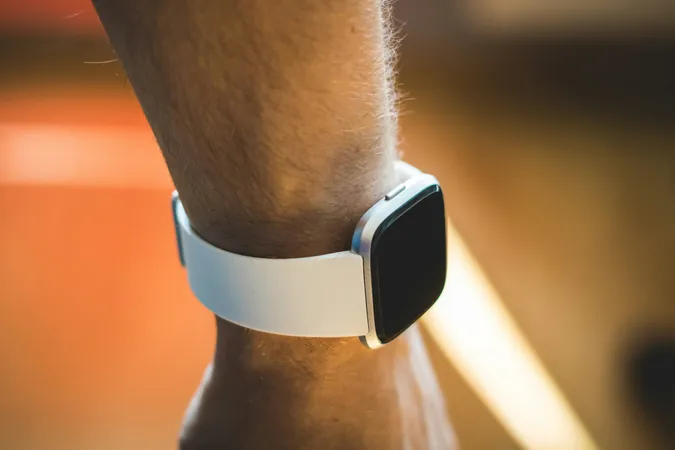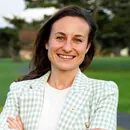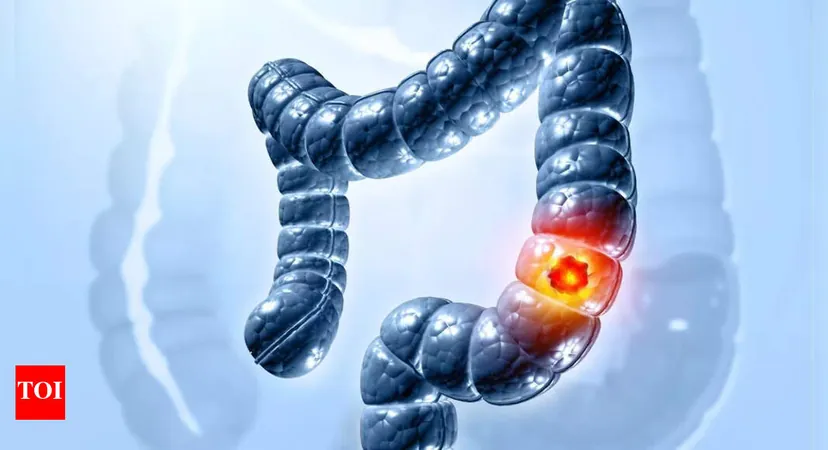
Revolutionary App Offers New Hope in Battling Cancer-Related Fatigue
2025-03-27
Author: Nur
Introduction
Cancer treatments such as chemotherapy and radiation are notorious for one debilitating side effect: fatigue. Unlike regular fatigue, cancer-related fatigue can be overwhelming and long-lasting, sometimes lingering for weeks, months, or even years after treatment has concluded. For many cancer patients, this fatigue can severely impact their quality of life.
Development of a Personalized App
Now, researchers at the Rogel Cancer Center, in partnership with Arcascope—a University of Michigan startup—have developed a groundbreaking personalized app aimed at addressing this issue. By tracking users' circadian rhythms and providing tailored behavioral recommendations, the app seeks to help individuals combat daily fatigue effectively. The findings were published in the journal Cell Reports Medicine.
Limitations of Traditional Methods
Traditional methods for managing cancer-related fatigue often involve medications, exercise, and mindfulness techniques, but these strategies may not be universally effective. "These measures appeal to only a portion of the population," explains Dr. Muneesh Tewari, an internal medicine professor and Rogel Cancer Center member. "Our goal was to create a resource that is more widely accessible."
Understanding Circadian Rhythms
Circadian rhythms, our body's internal clock, regulate sleep-wake cycles and influence many bodily functions, including digestion and temperature control. Disturbances to this natural system can exacerbate fatigue in cancer survivors. Interestingly, external stimuli like light can positively influence these rhythms.
Features of the Arcasync App
Caleb Mayer, a former graduate student and the study's first author, noted that while light-based interventions have shown promise, past research often employed a "one-size-fits-all" approach, administering light exposure at set times regardless of individual sleep patterns. The new app, named Arcasync, addresses this by monitoring users' sleep-wake habits through their heart rate and activity levels, then generating customized recommendations, such as advising users to "Seek bright light" at optimal times.
Trial Results
In a trial involving 138 participants with breast cancer, prostate cancer, and blood cancer, participants were divided into control and intervention groups over a 12-week period. All participants reported on various aspects of their well-being, including fatigue levels and sleep quality. Those using the Arcasync app saw significant reductions in fatigue, suggesting that personalized recommendations can enhance the quality of life for cancer patients.
Future Directions
Looking ahead, the research team plans to expand their study to include a larger sample size and investigate how well each participant adhered to the light exposure recommendations. "Addressing fatigue is just the beginning," said Olivia Walch, CEO of Arcascope, who conducted the research while studying applied mathematics at U-M. "We also aim to leverage findings about the circadian clock to enhance the efficacy and reduce the toxicity of cancer treatments. Our vision is to develop future versions of the app that help patients time their medications or prepare for infusions to maximize treatment effectiveness while minimizing side effects."
Conclusion
This innovative approach not only empowers cancer patients to take charge of their fatigue but also opens the door to potential advancements in cancer therapy. Keep an eye on this exciting development that could redefine the cancer treatment landscape!



 Brasil (PT)
Brasil (PT)
 Canada (EN)
Canada (EN)
 Chile (ES)
Chile (ES)
 Česko (CS)
Česko (CS)
 대한민국 (KO)
대한민국 (KO)
 España (ES)
España (ES)
 France (FR)
France (FR)
 Hong Kong (EN)
Hong Kong (EN)
 Italia (IT)
Italia (IT)
 日本 (JA)
日本 (JA)
 Magyarország (HU)
Magyarország (HU)
 Norge (NO)
Norge (NO)
 Polska (PL)
Polska (PL)
 Schweiz (DE)
Schweiz (DE)
 Singapore (EN)
Singapore (EN)
 Sverige (SV)
Sverige (SV)
 Suomi (FI)
Suomi (FI)
 Türkiye (TR)
Türkiye (TR)
 الإمارات العربية المتحدة (AR)
الإمارات العربية المتحدة (AR)